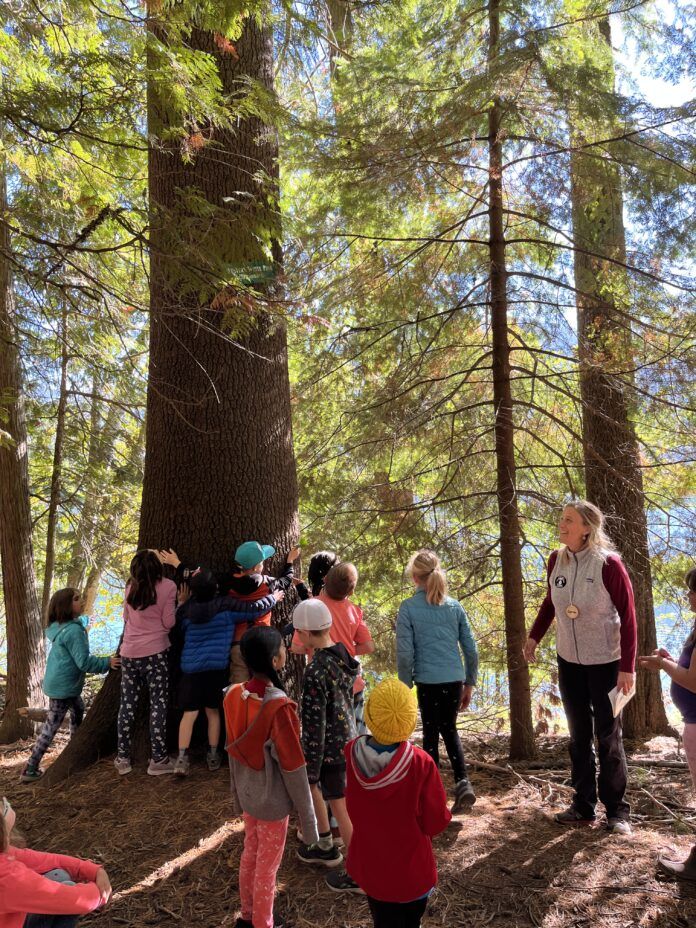Students in Grades 4 to 7 from around the region are being offered the opportunity to learn from and have fun with experienced education professionals to form lasting connections with nature.
Wildsight educational director Monica Nissen says the non-profit environmental organization offers a variety of programs designed to promote conservation initiatives.
“Wildsight works in the region to protect water, wildlife and sustainable communities,” says Nissen. “A section of what Wildsight does is education.”
She says educating youth is primarily what they are focused on, because it brings awareness about nature forward and nurtures students’ curiosity about their environment and what they can do to protect it.
“I think educators are realizing place-based learning, and learning from the land is very important,” she says. “It goes hand-in-hand with Indigenous ways of knowing and being curious in general.”
Nissen says there has definitely been a shift in demand for Wildsight education, and this is evident by the upward trend.
“I feel in the past Wildsight would have been the only outdoor education students would have got,” she says. “Now we are working hand-in-hand with teachers to get students outdoors more. We are filling more of a support role for educators.”
Hume elementary school teacher Janet Mushumanski says she is a strong supporter of Wildsight and has built in one day a month into her curriculum, but she feels that isn’t enough.
“It is worth more than one day a month,” she says. “The kids I am teaching are our future, and they need to learn about the environment around them and to take care of it so they can be the ambassadors and make sure nature is there for the future.”
Mushumanski says students appreciate the chance to be outdoors and during that time they learn a vast number of skills that can’t be taught in the classroom.
“You can tell from the kids’ body language that they enjoy being outside,” she says. “They learn nature skills such as tree identification, changing seasons, problem solving skills, and about their ecosystem and how we are all connected.”
She says there is potential that funding could be terminated from Wildsight and with the absence of this program in schools students would not be able to benefit from the opportunities that Wildsight offers.
“We rely on the experts to come in and teach our students,” she says. “If funding is pulled then that is not supporting our play-space learning, and our hands-on learning that we’ve been supporting and pushing in education.”
Wildsight currently receives funding from local groups such as the Osprey Foundation, the Leroi Foundation, Teck Trail, and Columbia Power but their core funding has come from Columbia Basin Trust.
According to Nissen, Columbia Basin Trust is unable to continue their funding because it is not part of their strategic plan, but they are open to hear what people from the public value.
Wildsight has been recognized as a leader in large-scale conservation, sustainable community initiatives and environmental education in Canada’s Columbia and Rocky Mountain communities since 1987.
For more information on how you can support Wildsight visit their website.





